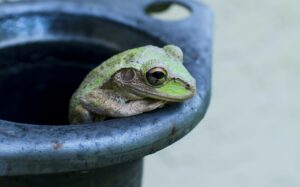
The ‘law’ of supply and demand isn’t a complicated thing, despite what your economics teacher would have you believe. Let’s pick a commodity… and, since it’s purely for the sake of illustration and we’re keeping things simple, let’s choose wax crayons.
Start with the idea that the available supply of wax crayons is pretty much equal to the demand for wax crayons. Crayon manufacturers are busy doing their thang, and kids are busy drawing pictures of rainbows (which is keeping fridge magnet manufacturers happy, too). Parents know roughly what crayons cost because this idyllic state of equilibrium keeps prices stable.
Now let’s change something in this happy little equation.
Some changes would drive prices down. Let’s say a new craze comes along for finger-painting, and word in the playground is that crayon drawings are uncool; or a new manufacturer floods the market with cheap crayons. When supply exceeds demand, retailers discount their stocks of wax crayons and prices drop.
Other changes would drive prices up. A new craze comes along for making funky fashion accessories out of wax crayons; or there’s a world shortage of the special multi-coloured wax they use to make crayons. When demand exceeds supply, retailers know they can charge more for their crayons and people will still buy them.
Now let’s get all of our wax crayons out and draw a really big picture. Consider a world where the price of everything seems to be rapidly increasing, and where everybody’s suddenly talking about a cost-of-living crisis. It’s not just a question of tightening belts, or of lower income families having to cut down on a few frivolous luxuries. No, we’re looking at a situation where the majority of people are at least moderately concerned about the rapidly rising costs of fairly essential things like food, energy, clothing, fuel, healthcare…
Theories abound on the causes of this crisis, yet they all miss the mark and fail to acknowledge the enormous elephant in the room. The news is full of articles about supply chains affected by pandemics, wars and strikes, crops affected by weather, availability of raw materials, etc., etc. There is plenty of focus on how we might improve supply. But why aren’t we talking about the demand side of the equation? We should ALL be talking about the fact that human population has doubled from 4 billion to 8 billion in under 50 years – less than one lifetime. We should ALL be talking about the impossibility of meeting this mind-blowing scale of exponentially increased demand. We should ALL be talking about the fact that this ‘crisis’ isn’t going to go away, it’s going to get a hell of a lot worse. We should ALL be talking about the fact that far, far greater problems of rising costs, empty shelves, power cuts, starvation, and brutal, violent desperation inevitably lie in store for all of us if we fail to tackle the insatiable, unsustainable demands of our species.
Well, I’m talking about it, and I make no apology for that. I’m no conspiracy theorist, but I’m also daring to suggest that the politicians and big businesses on whom we misguidedly rely to solve our problems fully intend to ride this runaway gravy train for as long as possible. So they will carry on discrediting ‘doomers’ like me and distracting you and your children with inane adverts for the latest must-have wax crayons – “New colours!!! Bubble-gum scented!!! Now with glow-in-the-dark glitter!!!” – and countless other things you don’t need. That way, you won’t open your eyes to the true state of the world, you won’t push for fundamental change, you won’t stop wasting resources, and you won’t stop breeding new consumers.
At least, not until it’s way too late.

